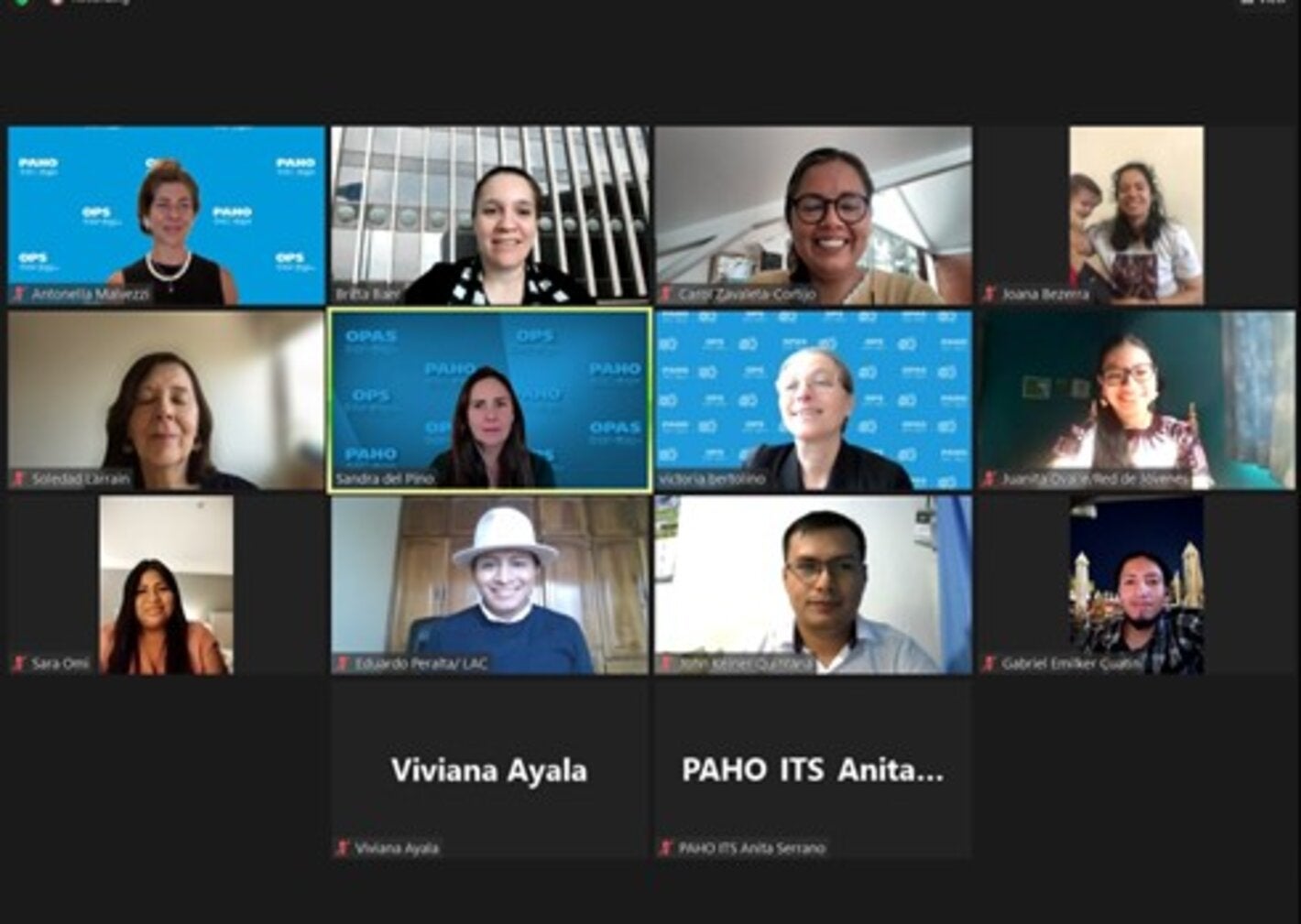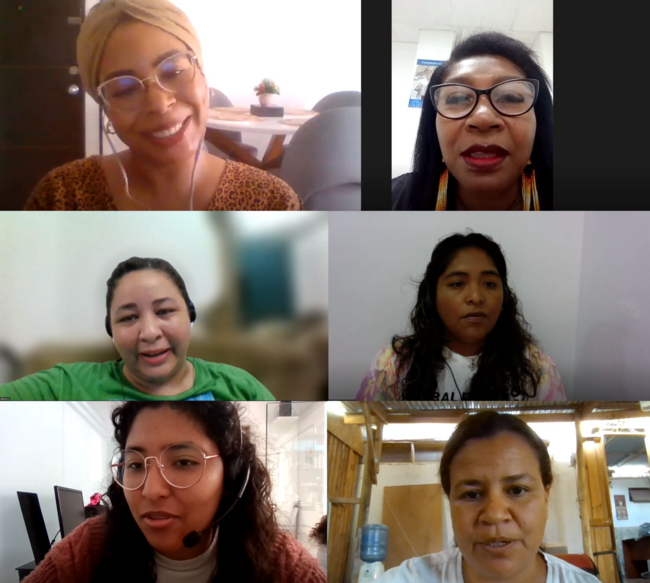
All women and girls can be at risk of violence, but evidence suggests that the risk in certain groups is higher.
Washington, D.C., November 30 - The Pan American Health Organization (PAHO) convened Afro-descendant women and men, and representatives of Indigenous Peoples, in a participatory consultation whose contributions will serve to prepare a report on violence against women and girls of these ethnic groups.
The consultation took place in two virtual sessions: the first was held with Afro-descendant women on November 29, and the second, the following day, with representatives of Indigenous Peoples, including young men. Recognizing the importance of the voice of the populations, representatives of different organizations in the Region participated in the meetings, including the Indigenous Youth Network for Latin America and the Caribbean.
It is estimated that 1 in 3 women between 15 and 49 years old in the Americas have suffered physical and/or sexual violence throughout their lives. While all women and girls can be at risk of violence, existing evidence suggests that both the risk of violence and barriers to accessing care and support are greater for certain population groups, including Afro-descendant and indigenous women. Therefore, it is important to give visibility to these groups and their needs.
This need is reiterated in the Strategy and Plan of Action on Strengthening the Health System to Address Violence Against Women, 2015-2025, and in the PAHO Policy on Ethnicity and Health, approved unanimously by the Member States in 2017, as well as in the Strategy and Action Plan on Ethnicity and Health 2019-2025.
In response, PAHO, with the support of the Government of Canada, initiated a scoping study that aims to compile available information on violence against Afro-descendant and Indigenous women, and those belonging to other ethnic groups, and to initiate a dialogue on possible next steps in the Region of the Americas.
This work will collect available information on violence against Afro-descendant and Indigenous women and those from other ethnic groups using different types of data sources. Furthermore, its objectives are, on the one hand, to identify information and evidence gaps that may limit the development of equitable violence prevention policies and programs, and on the other, to mobilize interested parties in the Region to deepen the dialogue, strengthen alliances and implement actions to prevent violence against all women and girls.
The Departments of Noncommunicable Diseases and Mental Health and the Department of Social and Environmental Determinants for Health Equity of PAHO collaborate in this report, whose publication is scheduled for 2024.
These consultations were a unique opportunity to join forces and knowledge in the fight against gender-based violence, to generate a regional conversation about what is known and what isn't, as well as to reflect on new ideas that promote inclusion and effective participation. These consultations will contribute significantly, from interculturality to the generation of a solid report and the strengthening of the health sector's response to survivors of violence in all their diversity in the Americas.




